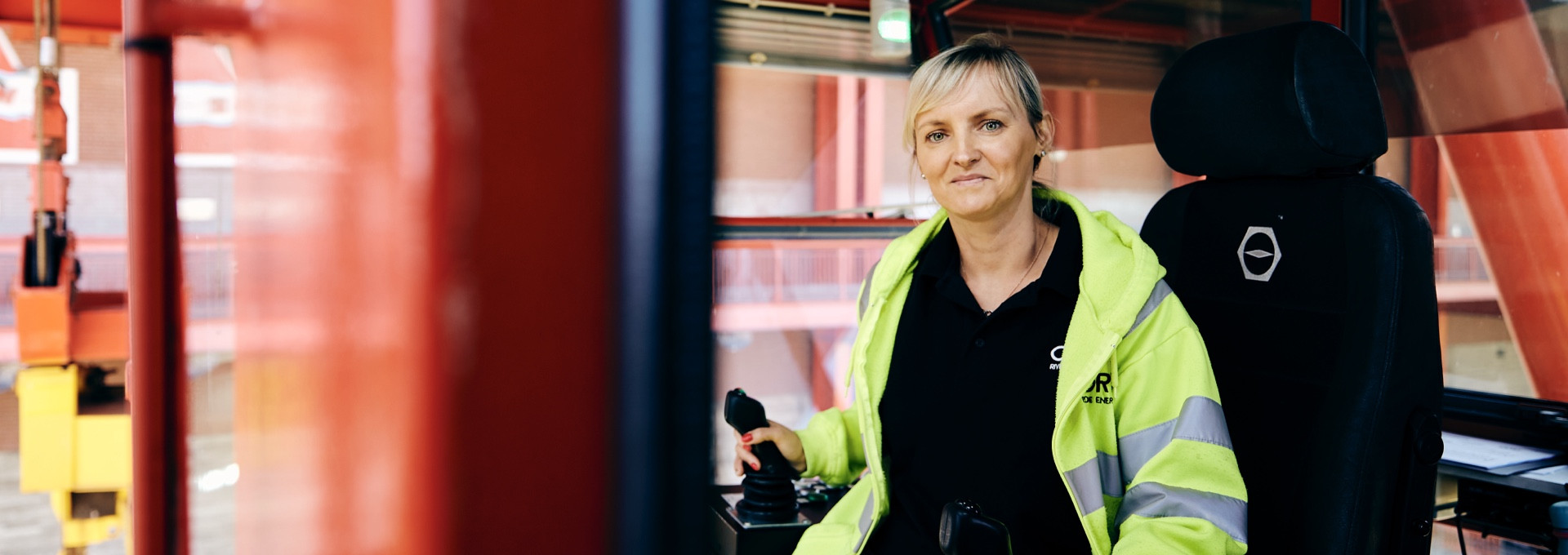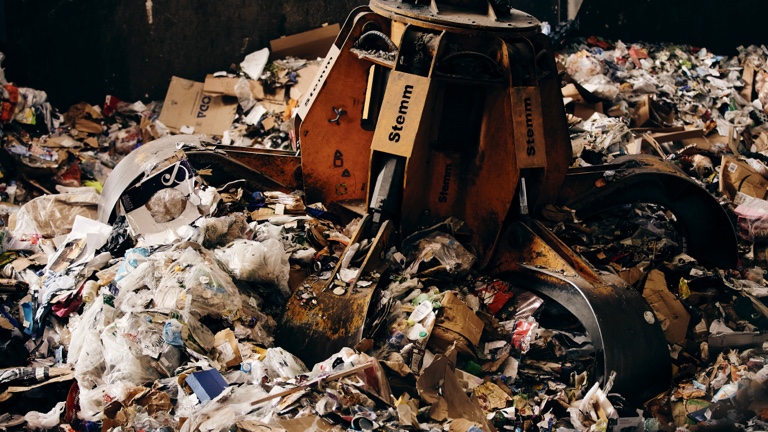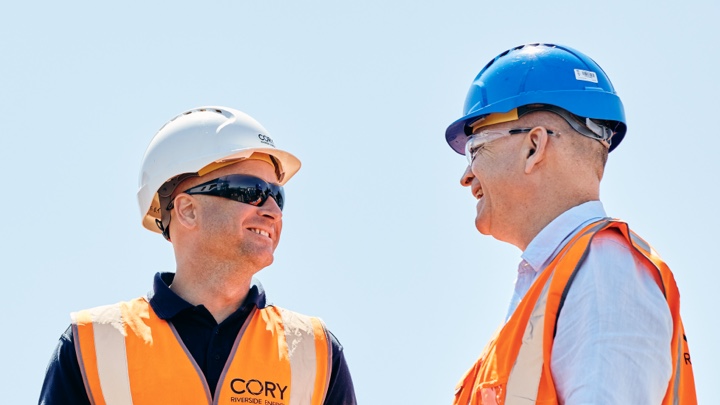
What we do
Explore how we take waste from across London's homes and businesses and turn it into energy and construction materials.
Click on an item below to find out more.
The journey of waste
Cory receives around 900,000 tonnes of non-recyclable black bag waste a year. 89 per cent comes to our riverside waste transfer stations.
Discover how we use river-based infrastructure to help London to manage its recyclable and non-recyclable waste through our interactive diagram.
Processing recyclable materials
Cory receives, sorts and segregates dry mixed recyclables (DMR) for Western Riverside Waste Authority (WRWA) and its four boroughs:
- Hammersmith and Fulham,
- Kensington and Chelsea,
- Wandsworth
- Lambeth
At the materials recycling facility at Western Riverside, Wandsworth. In 2022, this facility separated 77,000 tonnes of DMR into 15 categories, including five different types of plastic, for onwards recycling.
We also manage two Household Waste and Recycling Centres on behalf of WRWA and the London Borough of Tower Hamlets.

5
Different types of plastic sorted
15
Different categories of dry mixed recyclables sorted
77,000
Tonnes of dry mixed recyclables processed
Using the River Thames
We use the River Thames as a green highway.
Non-recyclable waste is transported on barges using tugs via riverside transfer stations in Wandsworth, Battersea, the City of London, Tower Hamlets, and Barking and Dagenham.
This saves around 100,000 truck movements a year – a vital way of getting traffic off the road and making London safer and less polluted.

100,000
Truck movements saved a year
52
Barges and five tugs transporting non-recyclable waste
Processing non-recyclable waste
Cory can process up to 850,000 tonnes of non-recyclable (also known as residual) waste a year at our Riverside 1 energy from waste (EfW) facility.
This residual waste comes from local authorities and commercial & industrial customers and is sent to our EfW facility via five river-based waste transfer stations.
Situated in Belvedere, Riverside 1 is one of the largest operational EfW facilities in the UK and the only one with river infrastructure for receiving waste.
An important by-product of the incineration process is steam. This steam is used to drive a turbine in the EfW facility that can produce partly renewable baseload electricity to power the equivalent of 195,000 homes or a town the size of Norwich.

258,000
Tonnes of carbon saved by not sending waste to landfill
789,000
Tonnes of non-recyclable ‘black bag’ waste diverted from landfill at Riverside 1 in 2022
195,000
Electricity generated to power equivalent number of homes
Ash recycling
Metals are extracted for recycling from the ash produced by the incineration process.
Up to 200,000 tonnes of ash can be recycled annually into aggregate for construction and roads, reducing the need to quarry virgin materials.
“Air pollution control residue”, which is the final by-product of the incineration process, is reprocessed into cinder blocks for construction. This ensures that no waste is wasted.

200,000
Tonnes of ash recycled into roading and construction material
10,000
Tonnes of ‘air pollution control residue’ recycled to create building blocks for construction
Repairing vessels on the Thames
Cory Ship Repair Services operates two slipways at Denton Wharf in Gravesend, on the banks of the River Thames.
The slipways, which can receive ships of up to 400 tonnes and 60 metres (length) by 18 metres (width), can be booked by marine operators for ship repairs, surveys and refurbishments. They are also used for upgrades and maintenance of Cory’s fleet of tugs and barges.
For more information, please contact us shiprepairs@corygroup.co.uk


